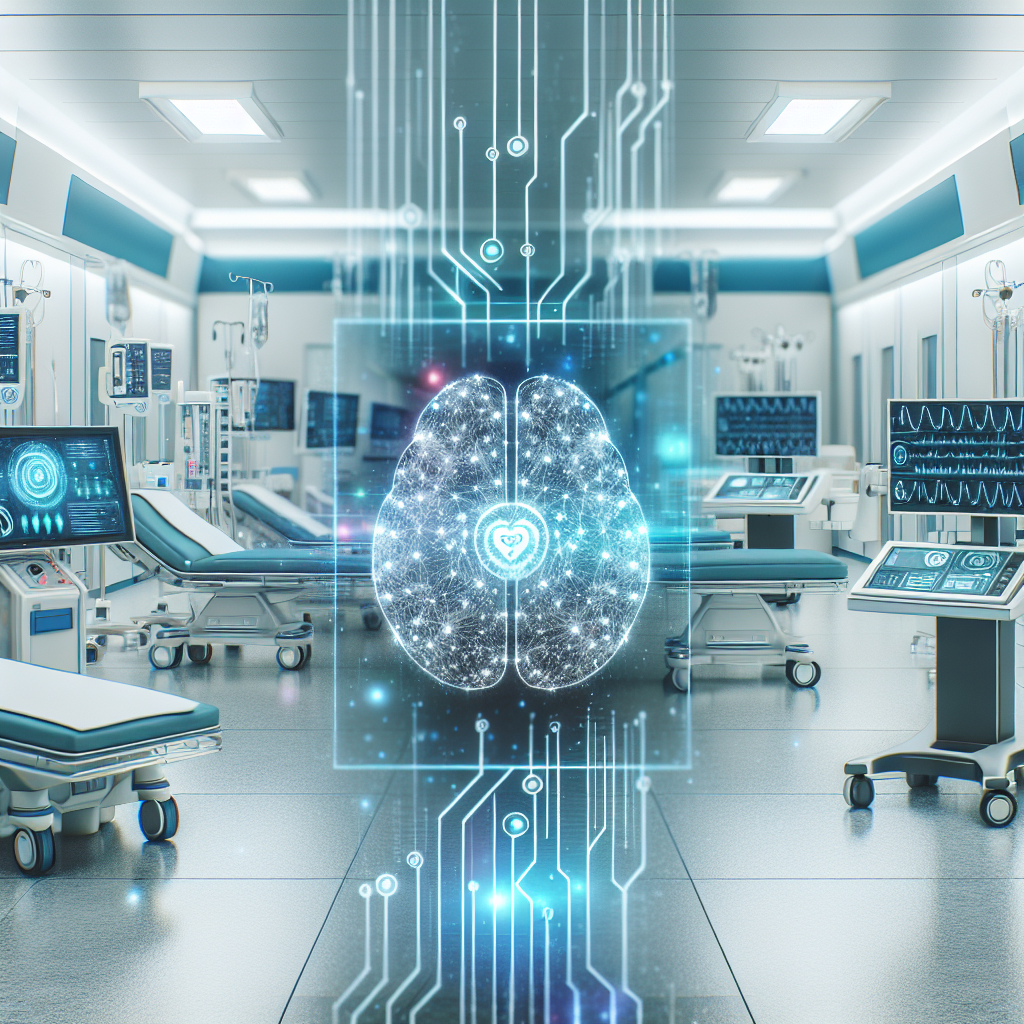The Role of AI Solutions in Healthcare Innovation
Artificial Intelligence (AI) has revolutionized many industries, including healthcare. AI solutions are playing a crucial role in driving innovation and improving patient outcomes in the healthcare sector. From assisting in medical diagnosis to enhancing patient care and streamlining administrative tasks, AI is transforming the way healthcare is delivered. In this article, we will explore the various ways in which AI solutions are being used in healthcare innovation and the impact they are having on the industry.
1. Medical Diagnosis and Imaging
AI-powered diagnostic tools are helping healthcare professionals make more accurate and timely diagnoses. AI algorithms can analyze medical images, such as X-rays, MRIs, and CT scans, to detect abnormalities and assist radiologists in identifying potential health issues. These AI solutions can help reduce human error and improve diagnostic accuracy, leading to better patient outcomes.
For example, AI-powered software developed by companies like Zebra Medical Vision and Aidoc can analyze medical images to detect signs of diseases such as cancer, fractures, and other abnormalities. This technology can help radiologists prioritize cases, reduce turnaround times, and improve overall patient care.
2. Personalized Medicine
AI is also playing a key role in personalized medicine, tailoring treatment plans to individual patients based on their unique genetic makeup, lifestyle, and medical history. AI algorithms can analyze vast amounts of patient data to identify patterns and trends that can help healthcare providers make more informed treatment decisions.
For example, IBM’s Watson for Genomics uses AI to analyze genetic data and provide personalized treatment recommendations for cancer patients. By analyzing a patient’s genetic mutations and comparing them to a vast database of medical literature, Watson can help oncologists identify targeted therapies that may be more effective for the patient.
3. Remote Monitoring and Telemedicine
AI solutions are enabling remote monitoring of patients and facilitating telemedicine services, making healthcare more accessible and convenient for patients. AI-powered devices can collect and analyze patient data in real-time, allowing healthcare providers to monitor patients remotely and intervene when necessary.
For example, wearable devices such as smartwatches and fitness trackers can track a patient’s vital signs, activity levels, and sleep patterns. AI algorithms can analyze this data to detect potential health issues and alert healthcare providers to any changes in the patient’s condition. This technology is particularly useful for patients with chronic conditions who require regular monitoring and intervention.
4. Drug Discovery and Development
AI is revolutionizing the drug discovery process, making it faster, more efficient, and cost-effective. AI algorithms can analyze vast amounts of biological data to identify potential drug targets, predict the efficacy of new compounds, and optimize drug development processes.
For example, companies like Atomwise and Insilico Medicine are using AI to accelerate drug discovery by screening millions of potential drug candidates in silico. By simulating the interactions between drugs and their targets, AI can help identify promising compounds that may have therapeutic potential, saving time and resources in the drug development process.
5. Administrative Tasks and Workflow Optimization
AI solutions are also streamlining administrative tasks and optimizing healthcare workflows, helping healthcare providers improve efficiency and reduce operational costs. AI-powered tools can automate repetitive tasks, such as appointment scheduling, billing, and coding, freeing up healthcare professionals to focus on patient care.
For example, chatbots powered by AI can handle patient inquiries, schedule appointments, and provide basic medical information, reducing the burden on administrative staff and improving the patient experience. AI algorithms can also analyze healthcare data to identify inefficiencies in workflows and suggest ways to optimize processes, leading to better resource allocation and improved patient care.
FAQs
Q: How is AI being used in healthcare innovation?
A: AI is being used in healthcare innovation in various ways, including medical diagnosis and imaging, personalized medicine, remote monitoring and telemedicine, drug discovery and development, and administrative tasks and workflow optimization.
Q: What are the benefits of using AI in healthcare?
A: The benefits of using AI in healthcare include improved diagnostic accuracy, personalized treatment plans, remote monitoring of patients, faster drug discovery processes, and streamlined administrative tasks.
Q: Are there any challenges to implementing AI in healthcare?
A: Some of the challenges to implementing AI in healthcare include data privacy and security concerns, regulatory compliance issues, integration with existing systems, and the need for healthcare professionals to be trained in using AI technologies.
Q: What is the future of AI in healthcare?
A: The future of AI in healthcare is promising, with continued advancements in technology leading to more accurate diagnoses, personalized treatment options, and improved patient outcomes. AI is expected to play an increasingly important role in shaping the future of healthcare delivery.

